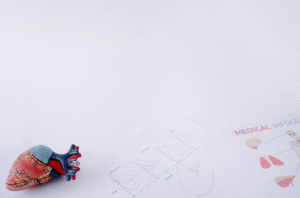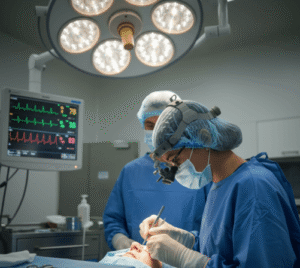Overview
Barotrauma is a medical condition that arises from injury to body tissues caused by changes in pressure between the external environment and internal air-filled spaces within the body. It commonly affects the ears, sinuses, lungs, and gastrointestinal tract, and can occur during activities such as diving, flying, or rapid altitude changes. Barotrauma can range from mild discomfort to severe, life-threatening complications if left untreated.
In Korea, modern hospitals and specialized clinics provide advanced diagnostic and treatment options for barotrauma. ENT (ear, nose, and throat) specialists, pulmonologists, and hyperbaric medicine centers offer comprehensive care for patients suffering from pressure-related injuries. Early intervention, accurate diagnosis, and appropriate management are crucial for effective recovery.
What is Barotrauma?
Barotrauma is a physical injury resulting from a difference in pressure between a body cavity and the surrounding environment. The most commonly affected areas include:
- Ears (middle ear barotrauma): Discomfort, pain, or hearing impairment due to pressure differences across the eardrum.
- Sinuses (sinus barotrauma): Pain and congestion from blocked sinus passages during pressure changes.
- Lungs (pulmonary barotrauma): Overexpansion of the lungs, potentially causing pneumothorax or air embolism.
- Gastrointestinal tract: Rarely, air trapped in the digestive system can lead to discomfort or complications.
Barotrauma is especially prevalent among scuba divers, pilots, and passengers in airplanes, where rapid ascent or descent creates significant pressure differences. The severity of barotrauma depends on the magnitude of the pressure change, the individual’s anatomical susceptibility, and the speed of exposure.
Symptoms
Symptoms of barotrauma vary depending on the affected area and severity:
- Ear Barotrauma: Ear pain, a feeling of fullness or pressure, hearing loss, tinnitus (ringing), or dizziness.
- Sinus Barotrauma: Facial pain or pressure, headache, nasal congestion, and sometimes nosebleeds.
- Pulmonary Barotrauma: Chest pain, shortness of breath, coughing, coughing up blood, and in severe cases, collapsed lung (pneumothorax).
- Gastrointestinal Barotrauma: Abdominal discomfort, bloating, or nausea due to trapped air.
Symptoms can appear immediately during pressure changes or manifest hours later. Severe cases, especially involving the lungs, can be life-threatening and require urgent medical attention.
Causes
Barotrauma is primarily caused by rapid changes in ambient pressure that the body cannot equalize quickly enough. Common causes include:
- Scuba diving: Ascending or descending too quickly, holding breath during ascent, or using faulty equipment.
- Air travel: Rapid cabin pressure changes during takeoff and landing.
- Hyperbaric treatments: Incorrect use of hyperbaric oxygen therapy can create pressure-related injuries.
- Mechanical ventilation: Patients on ventilators may experience pulmonary barotrauma if air pressure is improperly managed.
- Explosions or blast injuries: Sudden pressure waves can damage air-filled cavities in the body.
Underlying anatomical factors, such as Eustachian tube dysfunction or sinus blockages, can make individuals more susceptible to barotrauma.
Risk Factors
Certain factors increase the likelihood of developing barotrauma:
- Frequent divers or pilots exposed to rapid pressure changes.
- Upper respiratory infections or sinus congestion, which block normal pressure equalization.
- Allergies or nasal polyps affecting sinus or ear drainage.
- Pre-existing lung conditions, such as asthma or COPD.
- Improper diving techniques or failure to use pressure-equalization methods.
Complications
While mild barotrauma often resolves spontaneously, severe or untreated cases can lead to serious complications:
- Tympanic membrane rupture (eardrum perforation) with potential hearing loss.
- Middle ear infections following barotrauma-induced tissue damage.
- Sinus infections or chronic sinusitis due to repeated sinus barotrauma.
- Pneumothorax (collapsed lung) or air embolism in pulmonary barotrauma, which can be life-threatening.
- Chronic pain or tinnitus resulting from repeated or severe ear barotrauma.
Prompt medical attention is crucial to prevent permanent damage and long-term complications.
Prevention
Preventing barotrauma involves managing pressure changes safely and maintaining ear, sinus, and lung health:
- Equalization techniques: Swallowing, yawning, or performing the Valsalva maneuver during pressure changes.
- Slow ascent and descent during diving and flying.
- Avoid flying or diving with upper respiratory infections or congestion.
- Use of decongestants or nasal sprays if recommended by a physician.
- Proper training and equipment use for scuba divers and pilots.
- Routine medical checks for individuals prone to pressure-related injuries.
In Korea, specialized travel medicine and diving clinics provide education and guidance on barotrauma prevention for travelers, divers, and frequent flyers.
Treatment Options in Korea
Treatment for barotrauma in Korea focuses on symptom relief, healing of damaged tissues, and prevention of complications.
1. Diagnosis:
- Physical examination: ENT specialists examine the ears, sinuses, and lungs.
- Imaging tests: X-rays, CT scans, or MRI for detecting pulmonary barotrauma or sinus injury.
- Audiometry: Hearing tests to assess damage to the eardrum or inner ear.
2. Medical Treatments:
- Pain management: Analgesics and anti-inflammatory medications.
- Decongestants or nasal steroids: To reduce sinus or Eustachian tube congestion.
- Oxygen therapy: For pulmonary barotrauma or associated hypoxia.
- Antibiotics: If secondary infections develop in the ear or sinus.
3. Surgical or Advanced Therapies:
- Tympanoplasty: Repair of eardrum perforation in severe ear barotrauma.
- Sinus surgery: For chronic sinus complications or repeated barotrauma.
- Chest tube insertion: In cases of severe pneumothorax caused by pulmonary barotrauma.
4. Rehabilitation and Support:
- Hearing rehabilitation: For patients with hearing loss or tinnitus.
- Physical therapy: For lung recovery after severe pulmonary barotrauma.
- Patient education: Guidance on safe diving, flying, and pressure management techniques.
5. Follow-up Care:
Korean hospitals provide continuous monitoring for patients recovering from barotrauma, ensuring that tissue healing is complete and long-term complications are avoided. Preventive advice is given to reduce future risk during travel, diving, or occupational exposure.
In conclusion, barotrauma is a pressure-related injury that can affect multiple body systems, ranging from mild ear discomfort to severe lung complications. Korea’s modern healthcare system offers specialized diagnosis, comprehensive treatment, and preventive guidance, ensuring patients recover safely and minimize the risk of recurrence. Early intervention, proper management of pressure changes, and expert care are essential to preventing lasting complications.













